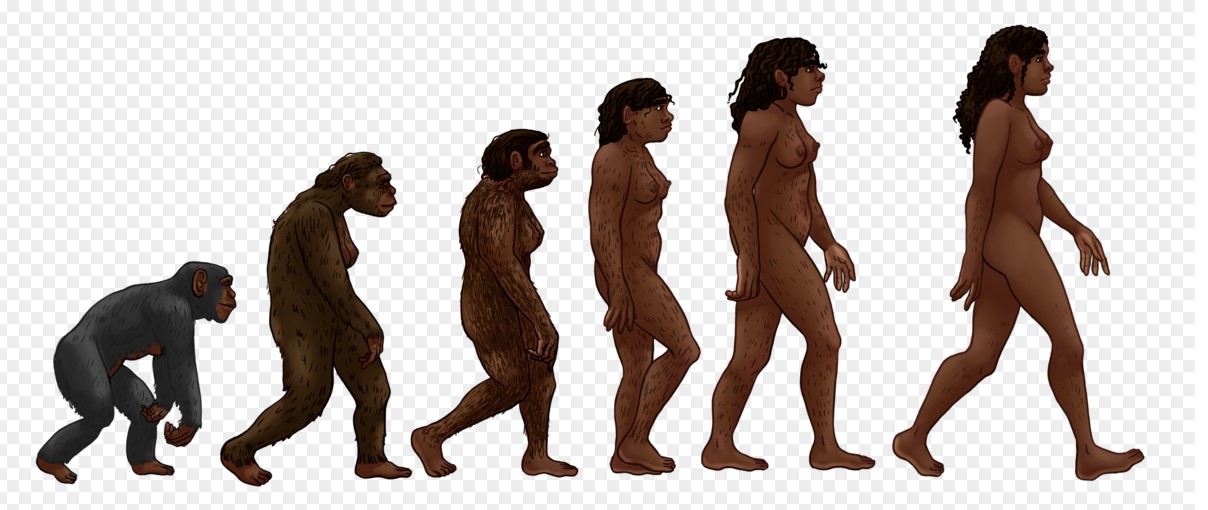Review by Andy Ford
The BBC Radio 4 series, The Life Scientific, gave a good summary on November 7 of the work and views of the materialist anthropologist Sarah Blaffer Hrdy. She is best known for explaining the importance of mothers and child-rearing in human evolution.
In the programme, she explained that although the stereotype of the active male and passive female did pre-date him, Darwin gave the idea the “scientific seal of approval”. Even though Darwin knew that many animal species did not follow the stereotype, he seemed to almost force it on the human species in the face of the evidence. In effect, he imported the sexual norms of mid-Victorian England into the science of Humanity. Sarah Hrdy has spent her career fighting the resulting misunderstandings.
Coming from southern Texas and with a conservative background, Hrdy had to battle prejudice against intelligent girls, or “bluestockings” as they were termed. But once she got to a girls’ school, and later university, her intellect blossomed. A key experience for her was, when working in Guatemala with the Maya people as part of her anthropology degree, she realised they “needed a revolution” but that she was not suited to that role. But the experience does seem to have moulded her outlook. After her degree, she found her way to a PhD in Primate Studies, and went off to India to study langur monkeys, where the males had been reported to practice infanticide, allegedly as a result of overcrowding.
Pathological behaviour
Once in India, she realised that the males were not killing the infants out of some sort of pathological behaviour, but that the killing of infants was linked to the takeover of the langur group by a new male. The male was killing the infants to force the females to mate with him and bear his young, not those of another male.
As such, the behaviour was adaptive, that is, it aided the spread of that male’s genes, and would be selected for by evolution. Lions exhibit a similar behaviour, and in marmosets the dominant females engage in infanticide to improve their reproductive success.
The female langur monkeys had then adapted a counter strategy of mating with outsider males, not just the male dominant in the group. Then, should an outsider take control, he could not be certain which infants were his or not. This helped the mothers avoid the death of their young. This behaviour was also adaptive and inherited. Hrdy had found female agency within what on the surface looked like male dominance.
The finding was controversial and the ‘grand old men’ of anthropology simply refused to accept it. Hrdy recounted one eminent male scientist who strode the rostrum after her presentation, turned his back on her, and said,“I have sent students to Mount Abu, and those are NOT normal monkeys”.

Their version of animal behaviour saw a situation where each animal in a group had their own function in the service of the group, under the leadership of a dominant male – just like capitalist society in fact. Hrdy’s findings were published in her first book, based on her PhD thesis.
Competition for mates
Her second book, The Woman That Never Evolved, argued that on the things that mattered to them, females were just as active and purposeful as males. And that also females competed for mates in just the same way as males. The view had been that males produced abundant sperm and competed for relatively few eggs; the females then simply gave birth year after year. The aspect of female choice as discounted.
Her research revealed that females in many species were much more polyandrous (not ‘promiscuous’) than any male biologists had thought, and that the behaviour was adaptive – it helped their young survive and thrive by confusing the male’s intending infanticide, by securing babysitters, by getting the males to provide food, and by acquiring better genes for their offsping.
On her return to the USA, Hrdy had to face prejudice at Harvard against a married woman trying to find a place in academia, and she ended up working as an unpaid post-doctoral researcher, and also working at her daughter’s nursery. She did not have the automatic progression available to male academics and was technically unemployed for several years.
Finally, in 1984, she secured a post at University of California, Davis, where she wrote Mother Nature, which looks at the differences between rearing human and primate infants. A human baby is very costly in terms of time and resources and Hrdy realised that without co-operative parenting (‘allo-parenting’) prehistoric humans would either have gone extinct, or failed to develop the large brains that are such an integral part of being human.
Anthropologists in the 1970s had read across from chimpanzees, which do practice continual contact mothering, to humans, where skin-to-skin contact between mother and child was recommended for as much time as possible. Hrdy noticed that studies and films of modern hunter-gatherers actually showed that the mothers were quite glad of someone else taking their child for a while, and that, in fact, children were reared cooperatively by the group.
Spatial and cognitive skills
There is a further implication of this insight: if children need the care of other adults as well as their parents, they will be competing for the attention, time and care of those adults. They will have evolved to appeal to them through looks and behaviours to attract help and support.
The children also have agency, therefore, and they compete with siblings and other children. Children and immature apes actually have similar spatial and cognitive skills, but children excel in social cognition – in understanding and manipulating other members of the group. The book argues that humans are ‘cooperative breeders’.
Hrdy then explained that her work has made her critical of the nuclear family. In hunter-gatherer societies, young couples will usually live with the woman’s family at first, especially when children are young, and later on, they may or may not move across to the man’s family, or set up on their own.
Arrangements are very fluid. Women have the right and ability to end relationships and select a new partner, as do men. The nuclear family is not ‘natural’, and in fact is a creation of capitalism in the last 200 years. But the way that modern society provides housing, schooling and nursery care is very much set up around this unnatural social construct. Hrdy became a big advocate for daycare as better for children, better for mothers and better for society in general.
Hrdy may not be a Marxist, but by taking a meticulous scientific approach to the observed facts and being prepared to challenge conventional wisdoms she does come close. Many of her findings fit well with Engels’ work on human society and evolution, The Origin of the Family, Private Property and the State. Sarah Hrdy has a further book on the biology of fatherhood planned for next year.
This BBC programme in the series The Life Scientific, is still available for listening and can be found here.
Books by Sarah Blaffer Hrdy: The Langurs of Apu (1977), Woman That Never Evolved (1981), Mother Nature: A History of Mothers, Infants and Natural Selection (1999), Mothers and Others: The Evolutionary Origins of Mutual Understanding (2009)



